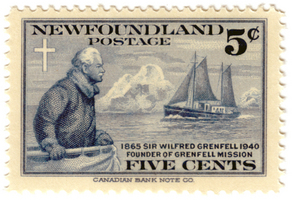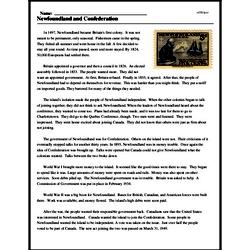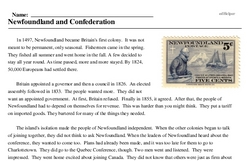Newfoundland and Confederation
1n 1497, Newfoundland became Britain's first colony. It was not meant to be permanent, only seasonal. Fishermen came in the spring. They fished all summer and went home in the fall. A few decided to stay all year round. As time passed, more and more stayed. By 1824, 50,000 Europeans had settled there.
Britain appointed a governor and then a council in 1826. An elected assembly followed in 1833. The people wanted more. They did not want an appointed government. At first, Britain refused. Finally in 1855, it agreed. After that, the people of Newfoundland had to depend on themselves for revenue. This was harder than you might think. They put a tariff on imported goods. They bartered for many of the things they needed.
The island's isolation made the people of Newfoundland independent. When the other colonies began to talk of joining together, they did not think to ask Newfoundland. When the leaders of Newfoundland heard about the conference, they wanted to come too. Plans had already been made, and it was too late for them to go to Charlottetown. They did go to the Quebec Conference, though. Two men went and listened. They were impressed. They went home excited about joining Canada. They did not know that others were just as firm about not joining.




